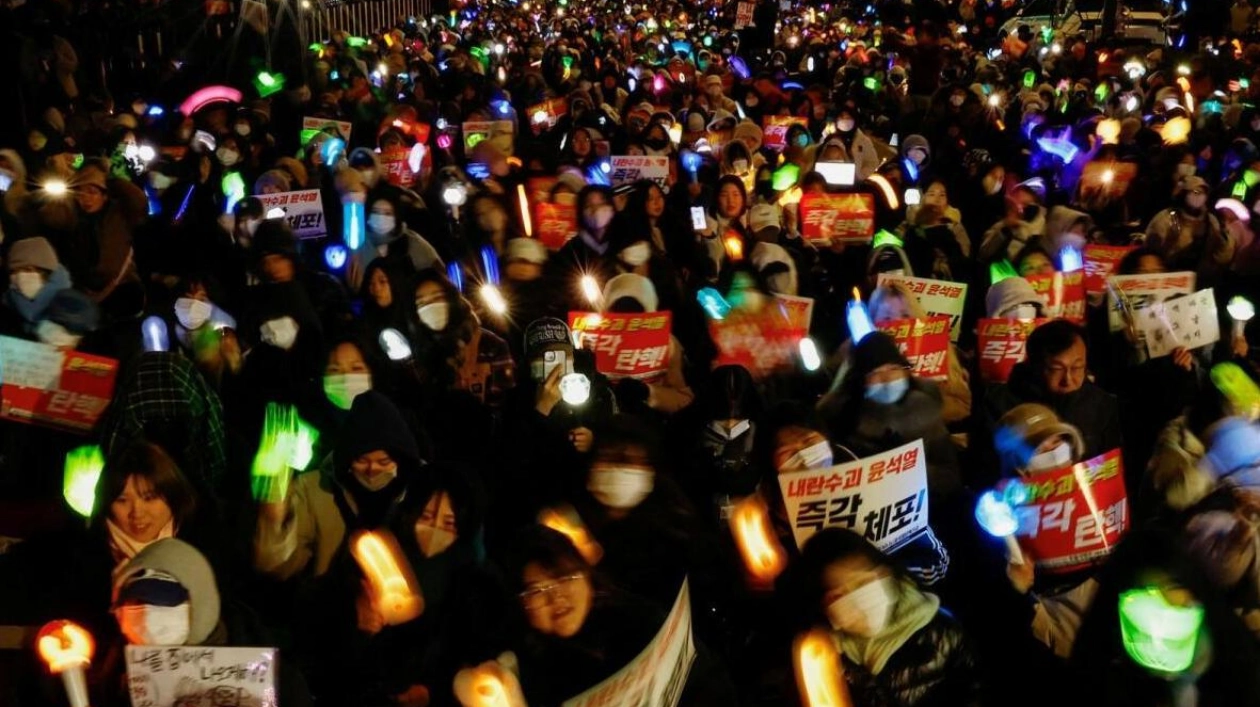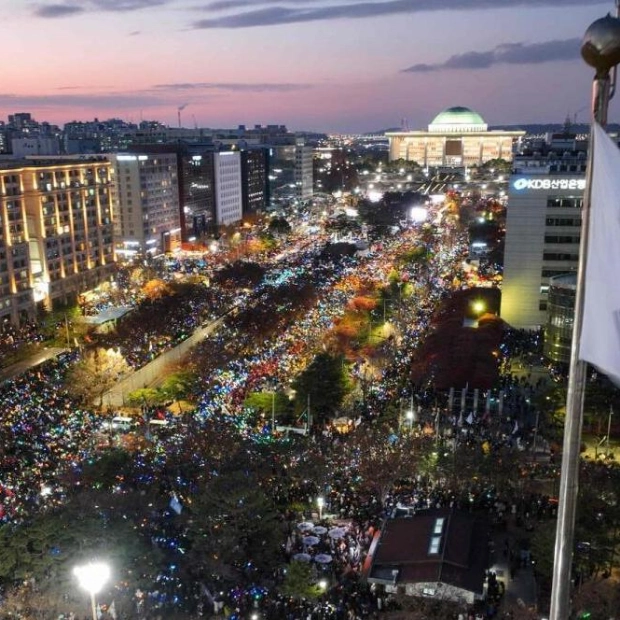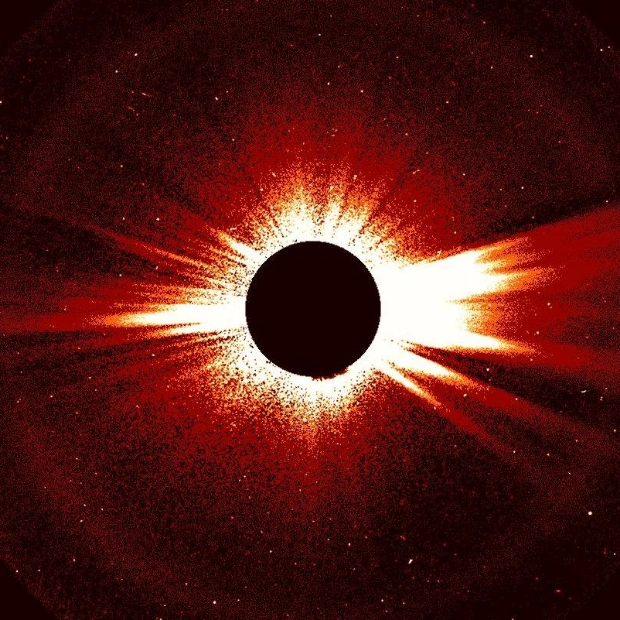Protesters gathered near the National Assembly in Seoul on December 8, 2024, demanding the impeachment of South Korean President Yoon Suk Yeol, who had declared martial law, a move that was later reversed. The main opposition party in South Korea announced plans to reattempt impeachment proceedings against President Yoon following his controversial declaration of martial law.
In the aftermath, police arrested the defense minister responsible for the martial law operation, and the interior minister resigned. Both officials, along with President Yoon, are under investigation for alleged insurrection. Despite facing impeachment late on Saturday, Yoon managed to avoid removal as large crowds continued to protest in freezing temperatures outside the parliament, calling for his ouster.
The opposition parties initiated the impeachment motion, which required 200 votes in the 300-member parliament to pass. However, the near-total boycott by Yoon's People Power Party (PPP) led to its failure. Lee Jae-myung, leader of the main opposition Democratic Party (DP), announced that they would try again on December 14.
In response to the failed impeachment attempt, the PPP claimed to have secured a promise from Yoon to step down, with the president agreeing not to interfere in state affairs, including foreign policy, until his resignation. However, opposition leaders, including National Assembly speaker Woo Won-shik, denounced this arrangement as illegal and unconstitutional.
Constitutional law professor Kim Hae-won from Pusan National University Law School described the situation as an 'unconstitutional soft coup.' Despite the political turmoil, police are continuing their investigation into Yoon and others for alleged insurrection related to the martial law declaration.
On Saturday, Yoon, 63, made a public appearance for the first time in three days, apologizing for the 'anxiety and inconvenience' caused by his martial law declaration. However, he did not resign, leaving the decision to his party. Massive crowds gathered outside the parliament, with estimates ranging from 150,000 to one million people, demanding the president's ouster.
Regardless of the political outcome, the police are investigating Yoon and others for alleged insurrection. Early Sunday, reports indicated the arrest of former defense minister Kim Yong-hyun, who had resigned and was subject to a travel ban. Interior Minister Lee Sang-min also resigned on Sunday.
Yoon's declaration of martial law was intended to protect South Korea from 'threats posed by North Korea's communist forces and eliminate anti-state elements plundering people's freedom and happiness.' Security forces sealed the National Assembly, with helicopters landing on the roof and nearly 300 soldiers attempting to lock down the building. However, parliamentary staffers managed to block the soldiers, allowing enough MPs to enter and vote down Yoon's move.
The incident evoked painful memories of South Korea's autocratic past and surprised its allies, including the US administration, which learned of the events through television. 'This is a country we've spent our entire lives building,' said Shin Jae-hyung, 66, who suffered arrest and torture during the 1970s and 80s while fighting against military-led regimes.
Source link: https://www.khaleejtimes.com






